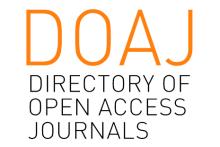Resource information
In recent debates on museum management, focus has been placed on the subject of its proactive nature, and on the comparison with the overall strategies of local governments within shared decision-making processes and negotiations, while maintaining the cultural mission and autonomy of the goals of management performance.
Starting from these assumptions, the study seeks to identify guidelines with a robust evaluation and management control system: points that underpin the drafting of strategic documents for cultural enhancement and sustainability, social inclusion and tourism-economic development of the reference territory.
The article develops in two parts:
1) comparison between economic approaches, decision-making support instruments and management control systems in the light of reasoning regarding the approach of cultural planning and points of reflection resulting from the analysis of different international museum accreditation systems and management documents or cultural heritage, such as the UNESCO Management Plans;
2) analysis, that combines the interdisciplinary vision with a more strictly disciplinary vision of enhancement and management of Cultural Heritage, finds a critical synthesis in the SWOT, and in the final synoptic framework, that delineate some suggestions regarding the role of the museum in the cultural planning process.




